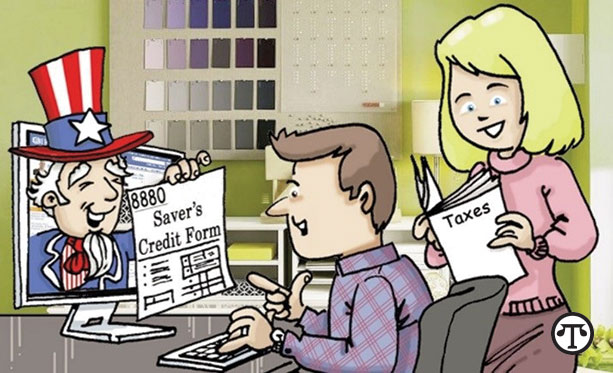
(NAPSI)—If you ever feel your finances are too stretched to save for retirement, you’re not alone—and there could be good news for you. The Saver’s Credit—a little-known tax credit made available by the IRS to eligible taxpayers—could make saving for retirement more affordable than you think. It may reduce your federal income taxes when you save for retirement through a qualified retirement plan or an Individual Retirement Account (IRA).
“The Saver’s Credit is a fantastic tax credit because it pays you to save for retirement. It offers eligible workers an added incentive to save for retirement on top of the benefits of tax-deferred savings when they contribute to a 401(k), 403(b), 457(b) or IRA,” says Catherine Collinson, president of nonprofit Transamerica Center for Retirement Studies®.
Here’s how it works:
- Check Your Eligibility
Depending on your filing status and income level, you may qualify for a nonrefundable credit of up to $1,000 (or $2,000 if filing jointly) on your federal income taxes for that year when you contribute to a 401(k), 403(b), 457(b) or similar retirement plan, or IRA.
Single filers with a maximum Adjusted Gross Income (AGI) of up to $31,000 in 2017 or $31,500 in 2018 are eligible. For the head of a household, the AGI maximum is $46,500 in 2017 or $47,250 in 2018. For those who are married and file a joint return, the AGI maximum is $62,000 in 2017 or $63,000 in 2018.
You must be 18 years or older by January 1 and cannot be a full-time student or be claimed as a dependent on another person’s tax return. If you fit within these parameters, the Saver’s Credit may be for you.
- Save for Retirement
Save for retirement in your employer’s retirement plan, if offered, or in an IRA. In general, for every dollar you contribute to a qualified retirement plan or IRA (up to the lesser of the limits permitted by an employer-sponsored plan or the IRS), you defer that amount from your current overall taxable income on your federal tax returns—and you may also qualify for the Saver’s Credit.
- File Your Tax Return and Claim the Credit
When you prepare your federal tax returns, you can claim your Saver’s Credit by subtracting this tax credit from your federal income taxes owed.
Workers who are eligible to claim the Saver’s Credit are also eligible to take advantage of IRS’ Free File program for taxpayers with an AGI of $66,000 or less. Twelve commercial software companies make their tax preparation software available through the Free File program at www.irs.gov/FreeFile.
- If you are using tax preparation software, use Form 1040, Form 1040A or Form 1040NR. If your software has an interview process, be sure to answer questions about the Saver’s Credit, also referred to as the Retirement Savings Contributions Credit and/or Credit for Qualified Retirement Savings Contributions.
- If you are preparing your tax returns manually, complete Form 8880, the Credit for Qualified Retirement Savings Contributions, to determine your exact credit rate and amount. Then transfer the amount to the designated line on Form 1040, Form 1040A or Form 1040NR.
- If you are using a professional tax preparer, be sure to ask about the Saver’s Credit.
- Consider having any refund you receive directly deposited to an IRA to further boost your retirement savings.
Note that the Saver’s Credit is not available with Form 1040EZ.
The 18th Annual Transamerica Retirement Survey found that just 36 percent of American workers are aware that the credit exists. Don’t overlook Uncle Sam’s Saver’s Credit; it may help you pay less in your current federal income taxes while saving for retirement.
For more details and resources on the Saver’s Credit and an online retirement planning calculator, visit Transamerica Center for Retirement Studies® at www.transamericacenter.org.
Transamerica Center for Retirement Studies® (TCRS) is a division of Transamerica Institute®, a nonprofit, private foundation.
“The Saver’s Credit—a little-known tax credit made available by the IRS to eligible taxpayers—could make saving for retirement more affordable than you think, says Catherine Collinson, president of nonprofit Transamerica Center for Retirement Studies®. http://bit.ly/2HC7pQX”
